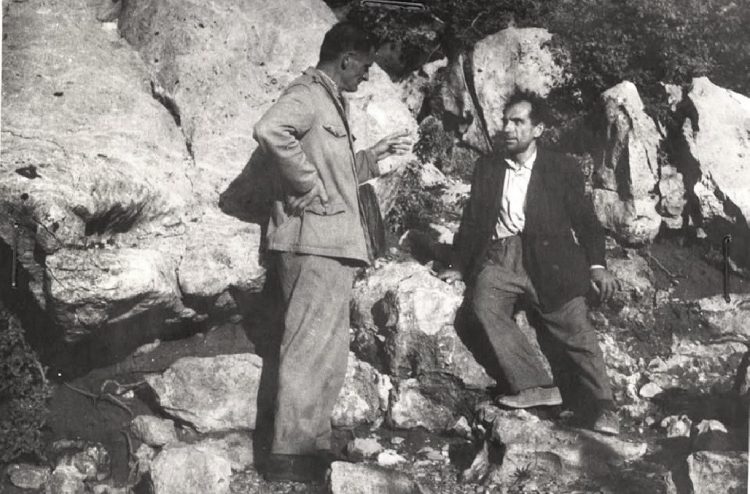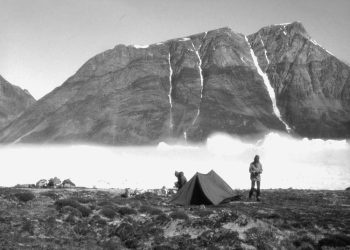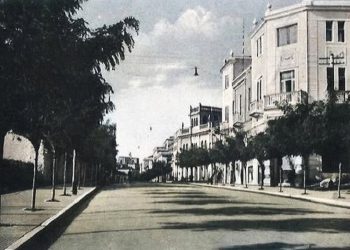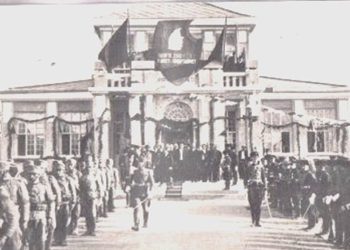By Father Zef Pllumi
THE DEATH OF STALIN
Memorie.al / To talk or write about Stalin today, more than 40 years after he died, seems out of place, not to say completely insane. Nevertheless, I think it is a duty before humanity to show the follies of mankind: those times that we have carried on our backs. When the Second World War ended, Stalin was praised as its greatest military strategist. He, 20 years before, had been the tyrant of the entire Soviet Union and with blood and terror, not only had he crushed the enemies of the Communist Party, but he had also mercilessly eliminated his own party comrades, who did not think like him; now he had a craving to rule the whole world, as Russia seemed too small to him. He took over the Balkans completely, except for Greece, which Churchill would not allow him to have in any way.
Tito was able to get away with it to some extent a little later, but the others, I don’t know whether out of conviction, servility, or fear, all tried to raise him higher and higher, until they made him like a god. Ah, Great God, what nonsense was written every day in all the press of this part of the world, which begins in Vladivostok and comes all the way here to Tirana!
Let’s leave philosophy aside, that he was already a greater ideologue than the classics of communism and socialism; let’s say also as a military strategist, and in state organization, but I’m not sure if he himself believed it, or if the servile and cunning exploited his name, and he even emerged as the greatest linguist of the times, with his theory on the origin of languages. And no one dared to even laugh or talk about this nonsense: you went straight to prison.
I remember that at that time in Shkodra, there were two orphaned sisters, but they were over 20 years old. One had become a communist and had been given a job somewhere in an office, while the other was unemployed, thus without any income: not even money to buy 400 grams of bread. With the salary of one, they struggled to live; it was extremely difficult, since salaries, as they were called then, were per head, and not for the family, i.e., just enough for one person to live, and even this one barely. One evening, when she returned from the office home, the communist one said to her sister:
- “What have you prepared for us to eat tonight?”
She looked at the portrait of the great Stalin, which she had bought and put there in the room they had, and said to her:
- “Here you have Stalin’s mustache, and they will do you well; if you want, boil them, if you want, fry them, because we don’t have a single bite of bread to eat!” The next evening she started her prison sentence; so the situation had reached this point and even worse.
One day, a rather strange piece of news appeared in the newspaper. It said that 9 doctors had been sentenced, who had given the great Stalin the wrong diagnosis and medicine, with the aim of shortening his life. A female doctor had discovered it; she was declared a heroine, and the doctors were put in prison. Stalin had been saved from them. From this news, it was understood that Stalin was a god who dies. And there in February 1953, the radio began to announce his health condition for the first time.
When he died, it was as if the world had collapsed. The strictest military measures had been taken. The country was covered in mourning. The communists cried for real, because they were waiting to see what would happen, and another part cried out of servility, because the communist propaganda until that day presented him as if he had the entire globe in his hand and even the sun could not shine without him. The Albanian tyrant there in Tirana knelt before his statue in the main square (where Skanderbeg is today) and the whole people were forced to kneel.
Many people ended up in prison on this occasion, because they smiled when others were crying. Stalin died and the world continued to rotate as always, and the sun did not move. There in the Kremlin, in his place, another god ascended, while the dead one was embalmed and, inside a crystal ark, he was placed there in the central square. The new religion of the godless communists could not exist without the religious rites of the old faiths.”
The period from 1954 to 1959 was the softest and most prosperous period of communist rule in Albania. This does not mean that there was freedom, but it was an attempt to present itself as a ready organization, with the other satellite states of the Soviet Union. The prisons were reorganized, as were the forced labor camps, which were named “Re-education departments.” Among them, the ration of bread and food had also begun to be improved: now they were given 800 gr. of bread, 40 gr. of macaroni or rice, 70 gr. of vegetables and it was also said for 40 gr. of meat, but it passed through many hands before it ever rarely reached the prisoner, just so he could see it with his eyes. They also gave a pair of outer clothes (jacket and pants), dyed earth-brown, which would fade as soon as you washed them twice; also two pairs of cotton underwear. But, above all, the payment for work was also introduced: those who exceeded the set work norm were paid a ridiculous percentage, but which was enough to buy 1 kg of sugar, a little oil, and some postal cards, and above all, those who worked a lot had their sentence reduced by 5 days a month.
In addition to what we said, the prisoners were also given two other very important rights: sleeping, i.e., they were given three blankets and 70-80 cm. of sleeping space on boards, in the barracks. This right was often violated, as the blankets were most of the time formal and you could see the light through them. If you complained, you would get the answer: “This is what we have: take it if you want, or leave it; sign here.” And those 70-80 centimeters depended on the capacity of the barracks and the number of prisoners.
The other right that the convicts had during this time was to meet their families, receive food or packages from them, and the possibility of cooking for themselves inside the camp in a small barrack, which was called; “the private kitchen.” For the prisoner, this was a very great favor, since with the food that the command gave; you would go straight to a state of exhaustion, which no doctor could bring you back from.
Despite all these freedoms and good regulations, the camps and prisons remained the most horrible places in the Republic, where a person had no human rights, where he was exploited by the state worse than a slave once was, where every commander, officer or policeman, would take your soul as he pleased, quickly or slowly, and you had nowhere to seek your right, since you were only valued as an animal, to do hard work.
From time to time, the Ministry of Internal Affairs itself organized provocations through which people were arrested, to turn them into slaves or beasts of burden, with which all the “Great Works of the Party” were worked: all the swamps and river flows were drained, most of the mines were exploited, and almost all the factories and new residential centers were built throughout Albania. So, Enver Hoxha, or the Labor Party of Albania, was the biggest owner of slaves that history knows.
This is how the prisoners lived. But the free people? Were there free people in Albania?! In the true sense of the word, there were none. During this time, Albania was woven (surrounded) everywhere along its border, with a “clone.” This is what the barbed wire network that was used by the military was called. Everywhere 200 meters, without reaching the border pyramids, long poles 4-5 m. had been erected, and with that type of wire, a special weaving was done so that the border could not be crossed, in any way.
This network was also equipped with electrical signals, in addition to trained dogs and people. Whoever tried to cross this “clone,” left his life there, under a hail of machine-gun fire and his body was left to carnivorous animals, or buried in indifference.
Inside this “clone” lived the Albanians, who had the freedom, in most cases, to get married according to the rules of the Party; they had the freedom to applaud and cheer for Enver Hoxha; they had the freedom to go to the toilet whenever they wanted; they had the freedom to speak well of the Party and the Government; but they did not have the freedom to express their own opinion, their dissatisfaction and their own needs, nor to listen to foreign radios, because these were punished by a law and were caught by the “propaganda article.”
I am sure that a percentage of them wanted to escape from this cursed land, but wherever you turned, the clone appeared. It wasn’t just the clone. Another spider’s web, extremely dangerous and threatening, protected every Albanian. The State Security, now with a rich experience of cunning traps, lies and betrayals, had sunk its claws into every Albanian brain, and like a terrible monster, it broke every thread of hope that could be woven for the dream of freedom. I have in my mind the old lawyer, Qazim Dani, who right after the great joy of being released from prison suffered a fatal shock when his 25-year-old son was killed, in search of freedom.
Also Kolë Gurakuqi; his only son, a teacher in Velipojë, was thrown into the water from the speedboat during the journey, but they killed him right there. I felt sorry for those two old people, and whenever I went to comfort them, I would return with a wounded soul, since every attempt at comfort was over for them. Not from old age, but from sorrow; from the loss of the only love on earth, when their minds had passed away.
The episode of Sandër Pistulli, one of the honest merchants of Shkodra, a true “gentleman,” was also painful, who melted all that wealth, which he had hidden out of fear, to escape with his whole family. When he and his whole family reached the shore of the lake, instead of boatmen, the people of the Sigurimi were waiting for him, who threw him in prison, for many, many years, while his scattered family suffered without being able to gather again in their own home.
Even more tragic was the story of a Muslim family from Shkodra. After many very secret attempts, they had managed to join three other young men, who were setting off for freedom in a boat. The family was young, and God had given them a son, who was not yet 6 months old; they were mainly dreaming of freedom for the little one. From Shkodra, the journey across the lake is very long.
After half the night passed, the boat entered the most dangerous area. It was right there that the baby started to cry. The poor mother huddled and gave him her breast. The faces of the young men were horrified: they were careful not to be heard making the noise of the oars, and now the crying of the child. The father, who was also rowing with the others, shouted at his wife in a whisper: “Give him your breast! Pacify the boy; you’ll get us all in trouble! The border guards are close!”
Unfortunately, the baby burst into even worse crying, and there was nothing to pacify him. It seemed as if on the shore, where the guards were, there was also a noise and preparation of weapons. The border guards with their own means could catch them alive or kill them all. The baby went mad with crying. A sigh was heard in a whisper: we’re done! At that moment, the father lost his mind. He had been accepted by his friends to be saved and now he was becoming the main danger to their lives. He dropped the oar and, furious as a wolf, snatched the baby from his mother’s breast and threw him into the water.
The silence of death fell on those rowers. The boat, with the grave-like silence it carried, crossed the border: it entered freedom. The life that was born became a sacrifice for freedom. A very great sacrifice. Did it require to be paid so dearly? At that time, news about escapees came more difficult than from the afterlife. Nothing for sure, but as I had heard, that wife never had a good day again and died four years later from consumption, which never left her since that night; while the husband lived in misery, for several more years. I wonder if freedom is nothing but an illusory, life-destroying microbe. It remains a mystery…”
MARASH
Those two children who I had dressed investments during the religious functions were very intelligent. I felt sorry that they could not continue school. I talked to their families. They gave me Marash, although not very willingly. His father said to me: “Where do you want to take him, sir? This school of theirs is the devil’s school and he will come out a devil!” One day I went to the local offices at the Riverbank and spoke about Marash, for the locality to send him with a scholarship. Only one of those officials had finished high school; all the others had only elementary school.
The final answer was this: “If we send all the children to school, which will guard the goats here in Dukagjin?” I saw that nothing would come out of them, and I went down to Shkodra. Together with the boy, I went to the education section. They told me: you have come late. School had not started yet, but registrations had ended. They did not accept him at all. Together with him, I set off for Tirana. I went to a dormitory. I spoke with the director. He happened to be a good and understanding man.
- “Why so late?”
- “If you knew where this child comes from, you would say it’s too early. He is from the Dukagjin Mountains, there at the top of the border. His mother has died, his poor father has to take care of him first, this is an intelligent boy, and it would be a shame to leave him without schooling. You know well that those mountains must produce their own cadres, in education, in health, in administration, etc., and not have people with schooling sent there, from Tirana and Shkodra.”
- “That’s right, that’s right, but the problem is that the state scholarships have been filled, there are a few places left with half scholarships.”
- “You mean that half of it has to be paid by the family?”
- “Yes, it takes 9 thousand lek, for the whole year, and in the summer he returns home.”
I then paid those 9 thousand and the boy was registered. I gave him all the instructions that a parent can give. As rarely as possible, I promised him, I will come to see you and ask about your lessons. I spoke with the director, to whom I did not tell that I was a cleric, and he took it as it befitted an educator. I never asked him what his name was.
For four years I kept that boy, in a dormitory in Tirana. During the summer, he stayed more with me than with his family. He could not get into a higher school at all. It seems that in his biography, they had put the information received from who knows who, that I had sent him to school. One day, he said to me: “And what did the school I did serve for?! Just to guard the goats in the fields of Palaj?!”
- “Since they don’t give you a scholarship at the University, at least look for a job in education or in administration.”
- “I have addressed my requests everywhere, but they close the door on me. Father, please, keep it a secret: they have called me and told me that I have to get up and speak against the friar, at the youth meeting. If you don’t do this, continue to guard the goats, with the schooling you have. I can never do this! It is a bad thing for me.”
I was immensely saddened. I was not able to say a single word to him, not a single lesson on how to act, at that moment so important for him: Life and Honor.
Six or seven years had passed, and I was again in the Re-education Department in Ballsh. In a kind of square cement bunker, surrounded on all sides by wires, the command had isolated about nineteen prisoners, with the most diverse accusations. Next to me were Dom Nikollë Mazreku and Gjon Perjaku.
One day I read a terrible event in the “Voice of Youth”: in the ‘Palaj’ neighborhood of Shosh, while in the Youth meeting “political work” was being done (this is what those meetings where they spoke against God and religion were called, or, as they called it more mildly, “against backward customs”) Marash Miruku and the Party’s envoy, Dedë Sokoli were left dead, struck by lightning, while all the other youth members had survived.
I read it several times, scrutinizing that article in every line and comparing all that data with the place of the event and the people who were mentioned there. My eyes filled with tears and with pain I threw the newspaper, sighing: Oh poor Marash! I remained very mournful. Gjon, who was next to me, asked me:
- “Why did your eyes fill with tears? As the newspaper says, and may it be true, he seems to have been a communist.”
- “I don’t believe it, but even if he had become a party member, I had him like a son.”
- “From what I understood from the newspaper, it seems that they intend to make him a ‘hero’, just as they have made a hundred others ‘heroes for nothing,’ even that blind man, what do they call him, who without eyes, does two work norms a day. Don’t worry about him!”
- “No, Gjon,” I replied, “it’s not like that. The pain I have for him today, it seems to me as if it comes from a spiritual responsibility that I had toward him. I found him as a child; he had just finished elementary school. He was very sharp. I tried to send him to school, not to lose that natural talent. His father stubbornly opposed me. ‘This is not a school, what the communists are doing,’ he told me:
‘They take away the brains that God has given them, and in their place, they fill the children’s heads with newspaper scraps, which are full of nonsense: to curse God, they say, is a good thing; to kill the enemy, they say, is a good thing; to rob others, they say, is good, because they themselves, will not leave you anything after you die; for them it is bad, only to dare to curse Enver Hoxha or the Party!’
This is what the poor father told me so often, until one day, just because he didn’t want to get in trouble with me, he let me, and I, at my own expense, took him to a dormitory in Tirana.
- “The old man was right; it seems that he became a communist there.”
- “No, no, he didn’t become one there. When the churches were closed, in 1967, they asked him to speak against me, but he did not accept. Now it is seen what kind of pressures he must have had! Have you heard what the people say, that ‘These people will make you do anything… ‘?! We cannot judge all people as bad. Then look, it’s been a very long time that we have been living without hope. God has abandoned us. They tore down all the churches, they put us in prisons. Events have rolled on and no one in the world remembers us.
A time that stifles the soul that weakens you. From weakness, a person even gives up; he is forced to do a job he should not do, and therefore he begs God to also send him death. And I have my doubts, when I analyzed the event in the ‘Voice of Youth,’ described so meticulously: the same lightning bolt, killed the party delegate, 200 meters away, and Marash, at the youth meeting, right in the middle of thirty people, in the room where I once lived.”
“It’s strange: only these two! It takes on the appearance of a real miracle, that’s why I think they will never give him the title of ‘hero for nothing.’ Who knows God’s works? Maybe Marash, he himself, with tears in his eyes, begged God, rather: strike me with lightning from the sky, since he no longer wanted this life. God’s command says: Judge not!” Memorie.al











